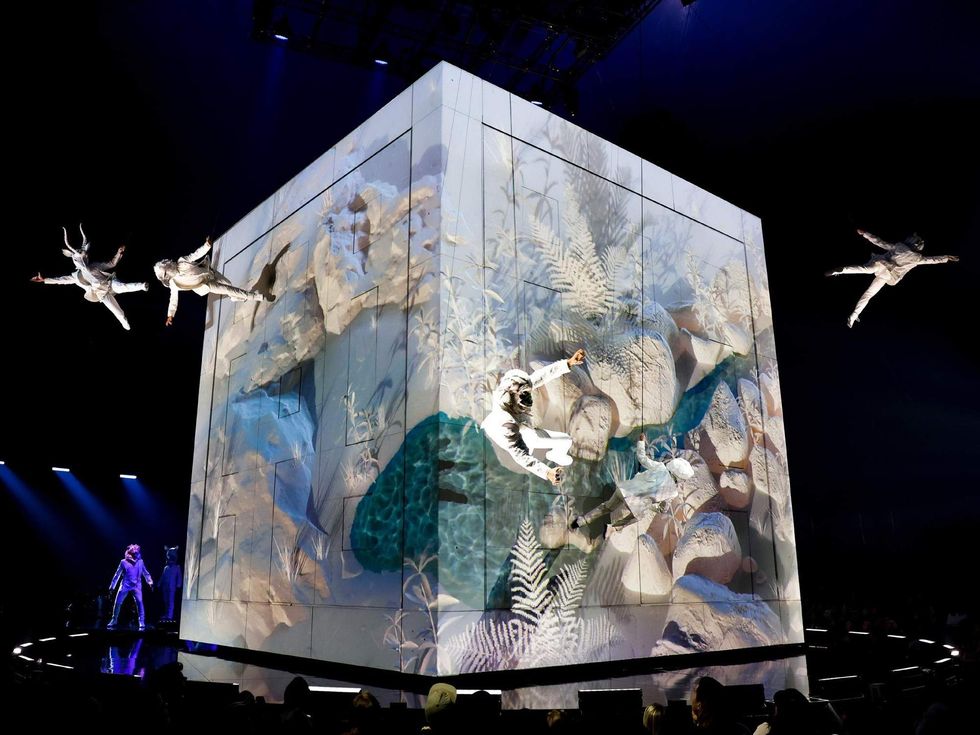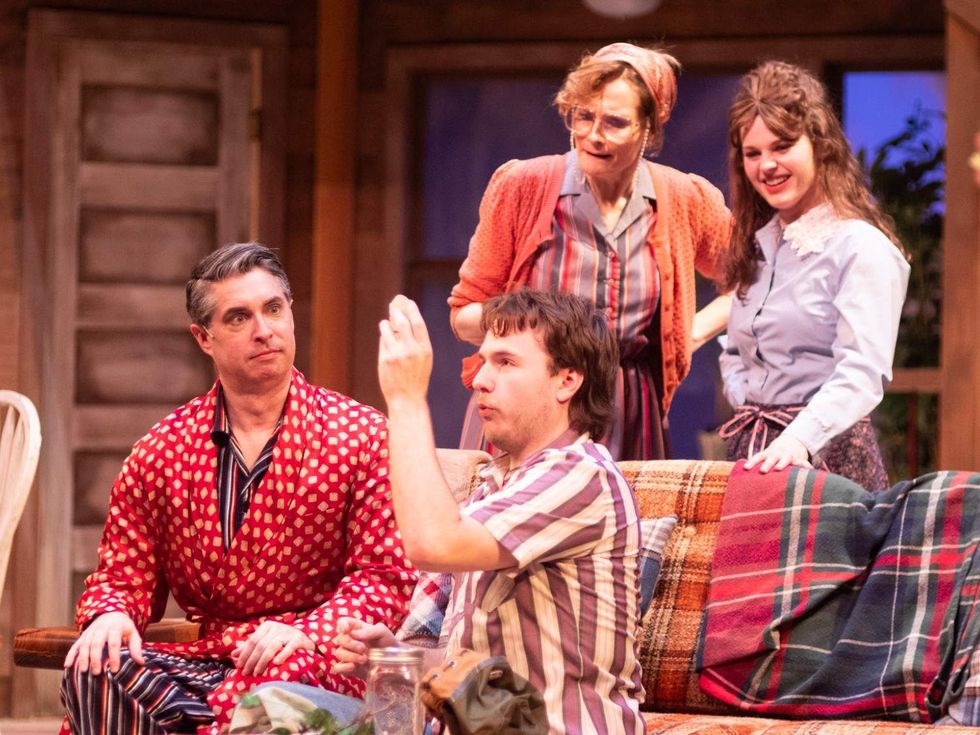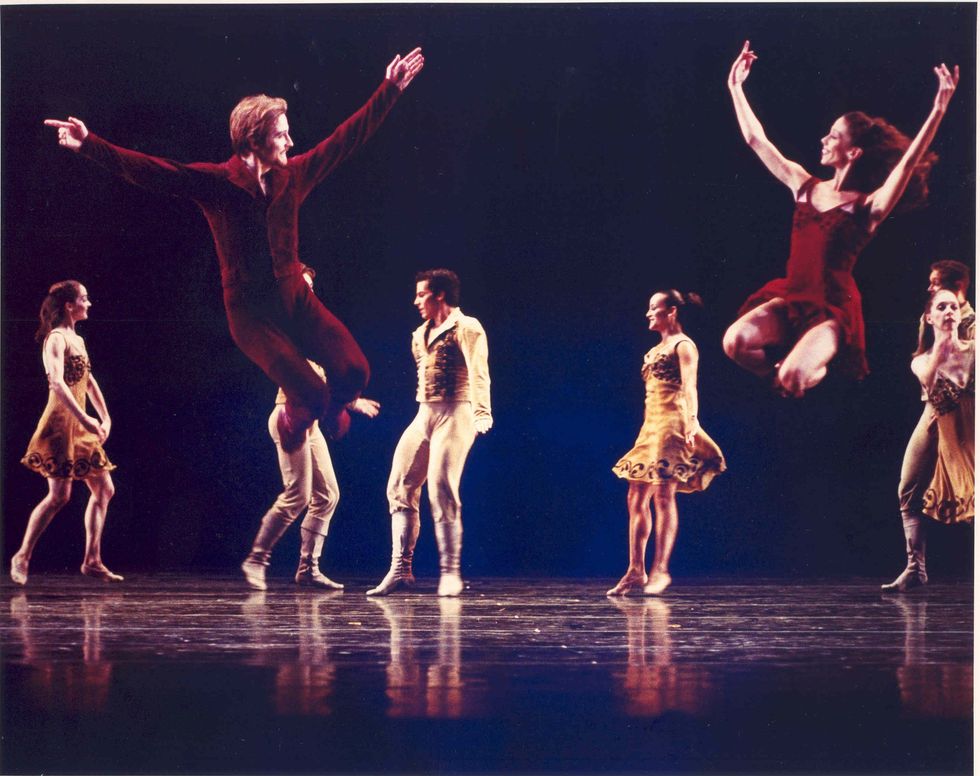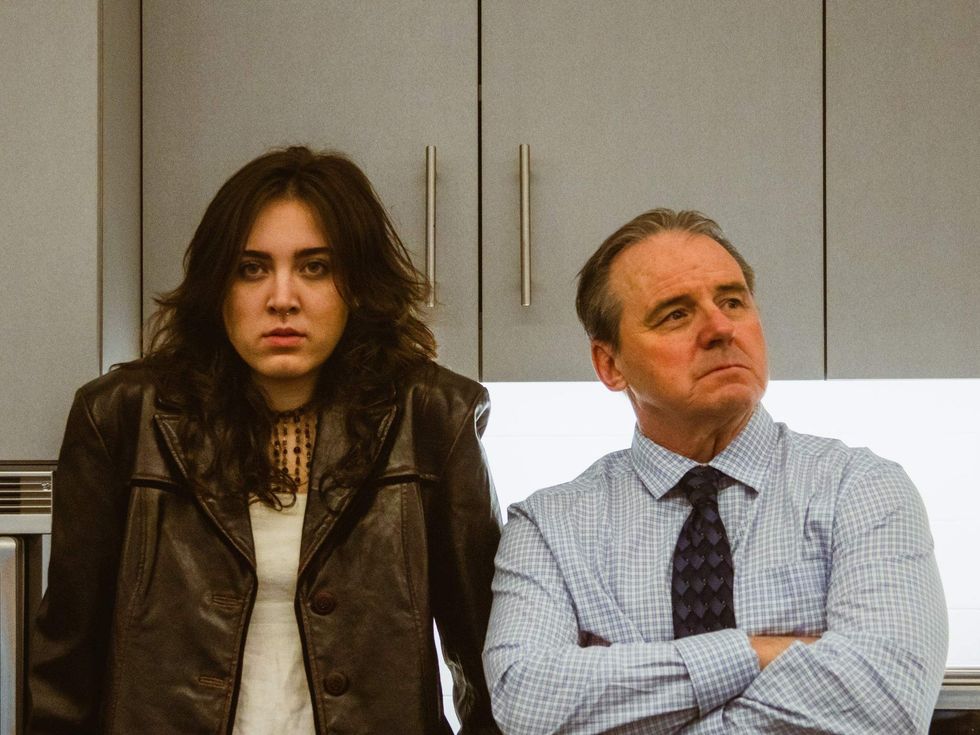Opera preview
It's complicated: HGO's Ariadne auf Naxos celebrates the beauty of contradiction
 Laura Claycomb, center, as Zerbinetta and Houston Grand Opera artists in"Ariadne auf Naxos, Comedia dell'arte"Photo by Felix Sanchez
Laura Claycomb, center, as Zerbinetta and Houston Grand Opera artists in"Ariadne auf Naxos, Comedia dell'arte"Photo by Felix Sanchez From the Houston Grand Opera production of "Ariadne auf Naxos," Naid played byKiri Dyan Deonarine, from left, Dryad played by Catherine Martin and Ariadneplayed by Christine GoerkePhoto by Felix Sanchez
From the Houston Grand Opera production of "Ariadne auf Naxos," Naid played byKiri Dyan Deonarine, from left, Dryad played by Catherine Martin and Ariadneplayed by Christine GoerkePhoto by Felix Sanchez Susan Graham as The Composer in the Houston Grand Opera's production of "Ariadneauf Naxos"Photo by Felix Sanchez
Susan Graham as The Composer in the Houston Grand Opera's production of "Ariadneauf Naxos"Photo by Felix Sanchez A scene from the Houston Grand Opera production of "Ariadne auf Naxos," withBoris Dyakov as Harlequin and Laura Claycomb as ZerbinettaPhoto by Felix Sanchez
A scene from the Houston Grand Opera production of "Ariadne auf Naxos," withBoris Dyakov as Harlequin and Laura Claycomb as ZerbinettaPhoto by Felix Sanchez Christine Goerke as Ariadne, left, and Laura Claycomb as Zerbinetta in "Ariadneauf Naxos"Photo by Felix Sanchez
Christine Goerke as Ariadne, left, and Laura Claycomb as Zerbinetta in "Ariadneauf Naxos"Photo by Felix Sanchez
Tragedies terrorize, comedies titillate. Richard Strauss’s unconventional Ariadne auf Naxos complicates.
Spectacular death and sexual shenanigans are the stuff of opera. So is the beauty of contradiction, and Strauss’s underperformed masterpiece will no doubt confuse, amuse, and wow audiences as the conclusion to an invigorating season at Houston Grand Opera.
At first glance, Ariadne auf Naxos, which opens Friday night, bristles with challenges for its viewer. Even the characters seem bewildered!
Strauss’s Ariadne is the tale of two interlocking acts. The prologue presents a behind-the-scenes look at the struggle to assemble after-dinner entertainment for a patron. That patron, though never present on stage, exercises his power in a series of commands that send an opera composer, a prima donna, a tenor, a comedienne and her dancing master, and a major-domo all scrambling to please the fickle financier. At the last minute, the patron requires that two rival companies, who have hitherto fought over which will perform first, must join together for a single performance.
The second act, the Opera, is a hybrid of the melancholic composer’s art and the comedienne Zerbinetta’s entertainments. Thus the characters of classical myth collide with the creatures of the commedia dell'arte with results that are both predictably hysterical and surprisingly touching.
How do you prepare for a sometimes-convoluted opera composed of an opera and an opera about an opera? Start by watching the recently released DVD of a wonderful Ariadne auf Naxosstaged at the Met in 2003, which features the conducting of the incomparable James Levine and stars Deborah Voigt as the Prima Donna, Natalie Dessay as Zerbinetta, and Houston’s own Susanne Mentzer as the Composer. All three give revelatory, definitive performances.
Mentzer, who graced the HGO stage this season in Dead Man Walking and The Marriage of Figaro, marks the role of the composer with her own signature stamp over the course of a decade of performances at the Met. One of the great challenges of staging Ariadne auf Naxos must be in locating the right trio of star sopranos, which HGO finds in Christine Goerke, Susan Graham, and Laura Claycomb.
In featuring classical myth, Strauss returns to one of opera’s great repositories of narrative. If you don’t have a copy of Bulfinch’s Mythology handy, just remember a few things. Ariadne was the young woman who helped the hero Theseus to find his way in and out of a perilous maze and defeat the beastly Minotaur. Theseus flees Crete with Ariadne in tow but sails away as she slumbers on the island of Naxos. Seduced and abandoned, Ariadne has the good fortune to be adored by the Bacchus, the god of wine and intoxication, who saves her from her weary, island-bound solitude.
The myth of Ariadne teaches that there is an elaborate give or take in life, which we often refer to as the tragic or the comic. But where we most expect one, the other appears. Contradictions such as these are the key to Ariadne auf Naxos. Strauss wittily exposes fundamental tensions—between art and entertainment, myth and reality, leading men and leading women, singers and composers, composers and audiences, opera seria, or serious drama, and opera buffo, or comic opera.
In the second act, Ariadne believes death has come to claim her when it is in fact the divine Bacchus. Joy and relief characterize her initially tragic story. And we take her lamentation and later relief seriously in spite of the incredible send-up of serious opera in the first act. Strauss’s music won’t let us do otherwise.
And what of the comic Zerbinetta who can’t get enough of men? Men can’t get enough of her, and as Ariadne despairs, a series of men chase Zerbinetta relentlessly and hilariously. At first it seems Zerbinetta’s disdain for serious themes has infected the opera. But in the opening act, the serious young composer must admit an attraction to the allure of Zerbinetta just as she admits that deep loneliness and sadness lurk beneath her frivolous demeanor. This sadness returns in Zerbinetta’s gorgeous final moments at the close of the opera while Ariadne's voice soars as she sails off into bliss.
Who needs resolution? The world is not what it seems but we are richer for it.






